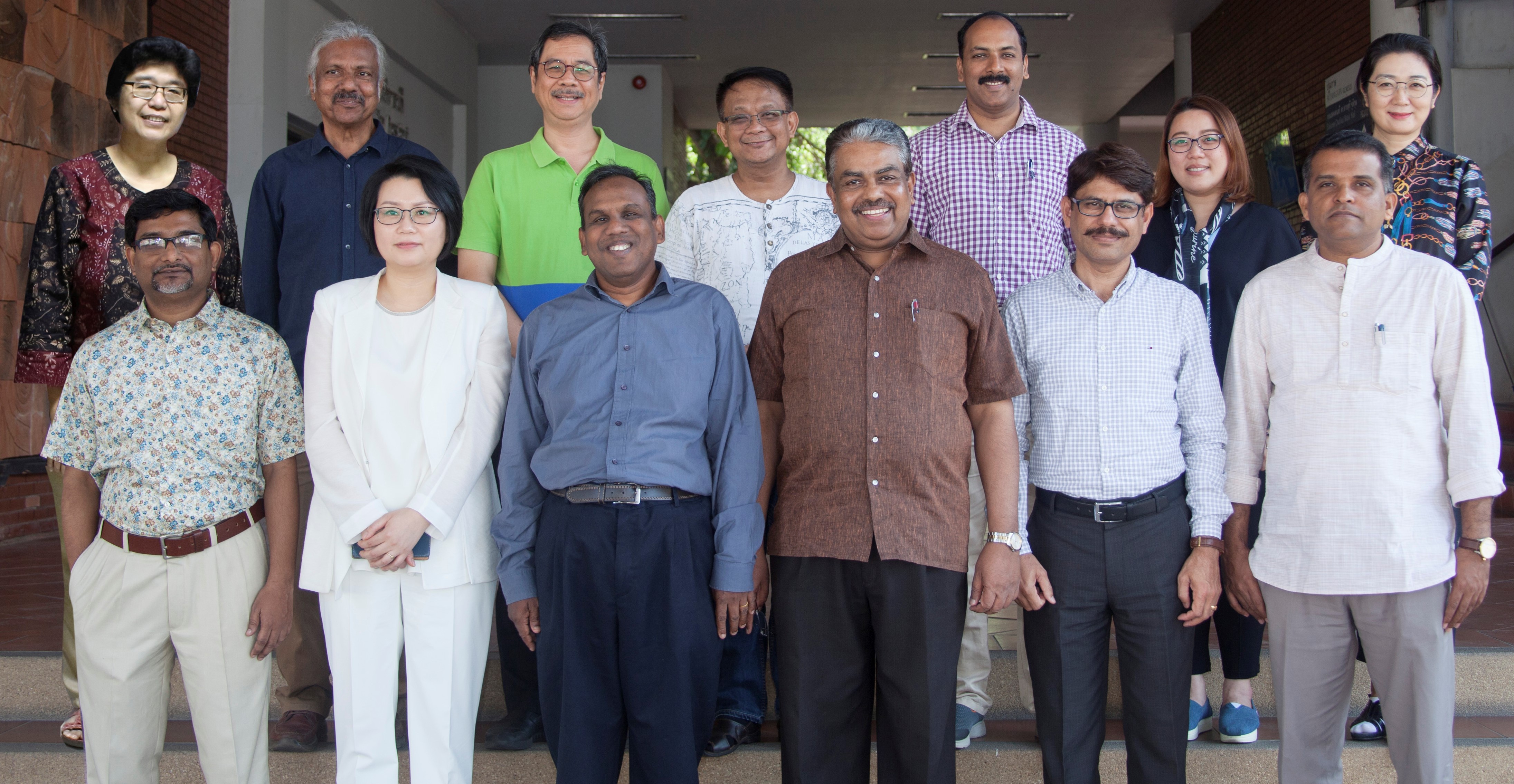Preparation for CCA's Fifteenth General Assembly begins
 Participants of CCA Assembly preparatory meeting
Participants of CCA Assembly preparatory meeting
CHIANG MAI, Thailand: Preparations for the 15th General Assembly of the Christian Conference of Asia (CCA) slated to be held from 3 to 10 September 2020 in Kovalam, India, began with the meeting of the Assembly Worship Committee. This was followed by a joint meeting with an expert group of theologians gathered at the CCA headquarters with the specific task of preparing study resources and materials on the Assembly theme for use prior to and during the Assembly.
The theme of the Assembly adopted by the CCA Executive Committee after careful and detailed deliberations is ‘God, Renew Us in Your Spirit and Restore the Creation’.
The sub-themes developed are ‘Towards Affirming the Will of God’, ‘Towards Dwelling in Harmony with Creation’, and ‘Towards Attaining Life in Its Fullness’.
The Assembly Worship Preparatory Committee, which met from 3 to 4 February 2020 at the CCA headquarters in Chiang Mai, worked out the details of the liturgical resources for the worship sessions at the General Assembly. Drawing from the richness of Asia’s ecclesiastical, spiritual, and cultural traditions, the Committee initiated the preparation of the worship resources and identified relevant Biblical texts and passages for meditations and reflections for the daily worship sessions of the week-long Assembly.
An expert group comprising mostly of Asia’s younger theologians who were specially invited from theological institutions and churches in Asia subsequently met. They pondered in intensive deliberations to work out theological and bible study resources based on Assembly theme and three sub-themes. During the joint meeting, plans for different thematic plenary and deliberative sessions were suggested. Emerging issues that were to be addressed from Asian perspectives within the overall context of the theme and the sub-themes were also identified.
The General Assembly in September 2020 is scheduled to focus around four thematic plenary sessions to cover the general theme and three sub-themes, as well as two slots of deliberative sessions titled Churcha (which means ‘conversations’ in different Indian local languages). The Churcha sessions will provide platforms to present, analyse, and discuss contemporary Asian issues in depth in relation to Assembly theme and sub-themes.
Each slot of the Churcha sessions will cover ten specific areas, and a total of twenty topics in two days. Churches, councils, and related ecumenical organisations will be invited to present and lead the Churcha sessions with the assistance of resource persons.
Dr Mathews George Chunakara, General Secretary of the CCA, explained, “The CCA General Assembly is the supreme body of the CCA which meets once in five years with the aims of celebrating the unity of the Church in Asia in worship, study, and action, and expressing the common vision of the churches for the direction and mission of the CCA.”
A quinquennial event, the CCA General Assembly brings together official delegates nominated by CCA member churches and councils across Asia, representatives of ecumenical partner organisations around the world, and delegated observers from the CCA member churches and councils.
Other participants expected to join the Assembly will be drawn from several pre-Assembly events such as the women’s pre-assembly, the youth pre-assembly, and the pre-assembly gatherings of CCA-coordinated networks and fora, like the Asian Ecumenical Disability Advocacy Network (AEDAN), and Asian Interfaith HIV and AIDS advocates. The students of the month-long Asian Ecumenical Institute (AEI) will also be given opportunities to be a part of the CCA’s 15th General Assembly.
The 15th General Assembly of CCA will be hosted by the member churches of CCA in India through the coordination of the National Council of Churches in India (NCCI).
The online registrations for various categories of Assembly participants will be opened on 1 March 2020.










